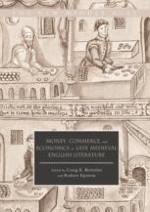2018 | OriginalPaper | Buchkapitel
9. The Need for Economy: Poetic Identity and Trade in Gower’s Confessio Amantis
verfasst von : Brian Gastle
Erschienen in: Money, Commerce, and Economics in Late Medieval English Literature
Aktivieren Sie unsere intelligente Suche, um passende Fachinhalte oder Patente zu finden.
Wählen Sie Textabschnitte aus um mit Künstlicher Intelligenz passenden Patente zu finden. powered by
Markieren Sie Textabschnitte, um KI-gestützt weitere passende Inhalte zu finden. powered by
